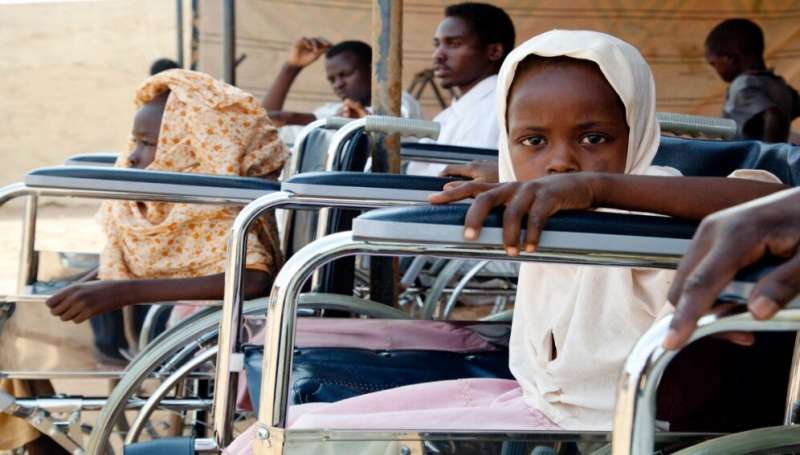Less than half the population of Africa are not receiving the health services they need, with vulnerable groups including gay and disabled people left behind, says a report.
Africa's health systems are failing to meet the needs of the poor, the disabled, lesbian, gay, bisexual, transgender and queer (LGBT), with challenges ranging from discrimination andstigma to poorly designed health care facilities, according to the African
Health Agenda International Conference (AHAIC) Commission report.
According to a 2019 study in South Africa, healthcare workers are not trained to handle LGBT population seeking healthcare services. The LGBTs are subjected to verbal abuses and denial to medical services by healthcare workers.
Another study published in January this year on the uptake ofdaily pre-exposure prophylaxis (PrEP) to prevent HIV infections among transgender women and gays in Kenya found that stigmatizing healthcare services led to dropouts from the program.
The transgender women and gays were asked insensitive questions by healthcare workers about their sexual orientation that led to dropouts, consequently compromising the efforts to achieve zero new HIV infections.
Coverage of services for women and girls is also low, said the AHAIC Commission report launched this month (8-10 March) during a virtual conference. Between 2015 and 2019, 51 percent of African women and girls could not access modern methods of family planning.
In Malawi, stroke patients were unable to access healthcare services because they could not walk, the report added, highlighting the problems faced by those with limited mobility.
"COVID-19 exposed many inefficiencies in our health systems. It has shown that health is not a matter of healthcare service providers but it's for everyone," said Solange Hakiba, co-chair of the commission and chief of party, USAID-Rwanda.
Low quality healthcare service is the worst performing indicator of universal healthcare (UHC) in Africa, with 48 percent of the population unable to access healthcare services they need, according to the commission.
Hakiba called for a focus on funding primary healthcare and non-communicable diseases such as cancer as "they are weakening the African population."
The report reveals inequality in healthcare provision such as the demand and access to family planning services being four times higher among the rich than the poor. The World Health Organization says that 11 million Africans fall into poverty annually because of high out-of-pocket payments.
The virtual conference, hosted by Amref Health Africa, was attended by over 3,000 participants from Africa and other regions from government, private sector, academic and research institutions.
Jonathan Dangana, a technical advisor at Amref with expertise in universal health coverage, said that segments of the population such as adolescents, youth and people with special needs risk being left out. He added that the inclusion of such groups is critical in redefining the African narrative of achieving UHC because this category constitutes more than half of Africa's population.
Dangana explained that the COVID-19 pandemic has reinforced the dire need for achieving universal health coverage through legislation and re-examining primary healthcare strategies.
Dangana, who is also a lecturer in the Department of Public Health at Nigeria's Babcock University, told SciDev.Net that the AHAIC Commission identified root causes of poor healthcare services such as inadequacies in the workforce and high dependence on donor funding that could be addressed through prioritization of budgetary allocation and financing healthcare.
"This means seeing health as an investment and not just a mere social responsibility," said Dangana. "Primary healthcare is key in making and ensuring healthcare is available to all. Hence, with a functional primary healthcare system in place, achieving UHC naturally becomes [easy]."
Kenya's President Uhuru Kenyatta told the conference that Africa has to do a lot more to achieve UHC and the targets of the third goal of UN's Agenda 2030 on sustainable development.
"African countries continue to suffer from the burden of diseases that can be tremendously reduced through UHC," said Kenyatta, adding that simple hygiene interventions such as handwashing could dramatically reduce some viral diseases affecting Africans.
More information: Makobu Kimani et al. "I wish to remain HIV negative": Pre-exposure prophylaxis adherence and persistence in transgender women and men who have sex with men in coastal Kenya, PLOS ONE (2021). DOI: 10.1371/journal.pone.0244226
Executive Summary: The State of Universal Health Coverage in Africa: ahaic.org/download/executive-s … -coverage-in-africa/
Zamasomi P. Luvuno et al. Evidence of interventions for improving healthcare access for lesbian, gay, bisexual and transgender people in South Africa: A scoping review, African Journal of Primary Health Care & Family Medicine (2019). DOI: 10.4102/phcfm.v11i1.1367
Journal information: PLoS ONE
Provided by SciDev.Net























